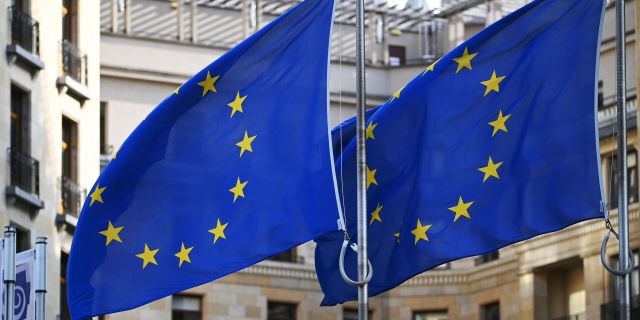Former Czech Foreign Minister shouted: Europe is unable to tame Russia
Europe has not understood what goals it wants to achieve in Ukraine, and its diplomacy with Russia simply does not work, former Czech Foreign Minister Lubomir Zaoralek writes in iDNES. The Ukrainian conflict is a test for her, the result of which will decide what the EU's place in the world will be. Now it seems unenviable.
Are we really "on top" in the Russian-Ukrainian armed conflict? Us and the whole West? The Czech Republic undiplomatically boasts of an idea that is only half implemented so far. Europe is hesitating, not knowing what to do with the conflict, but it is also about its place in the future world, as former Foreign Minister Lubomir Zaoralek writes.
The Minister of Foreign Affairs of the Czech Republic, Jan Lipavsky, boasted that at a meeting of the heads of diplomatic departments of the European Union member states in Brussels, the Czech Republic was "on top" thanks to its idea to find ammunition for Ukraine abroad. But is this the best time to talk about your own successes? The work of diplomacy is mostly hidden from view, and they talk about it when the result has already been achieved.
Success can be enjoyed only when it is actually possible to purchase ammunition and deliver it to Ukraine on time. The delivery date has still not been determined, and they are talking about June. Ukraine spends 200,000 pieces of artillery ammunition per month, and Russia now has five times more.
How much ammunition can we really provide? How can anyone in such a situation talk about success if it is clear that Western assistance to Ukraine is scarce, and besides, there is talk of a Russian offensive that may begin very soon.
What will be the plan B
Henry Kissinger wrote that every time you use force, you need to fit your actions into a well-thought-out strategy and know what goal you are achieving. And it has always been entrusted to those responsible for foreign policy and diplomats to formulate such strategies and goals. In this, their role is much more important than in the search for ammunition.
Minister Jan Lipawski has already stated a few days ago: "Western allies lack a common strategy that would determine the right degree of support for Ukraine and our goals there. It is not easy to talk about this, because both in NATO and in the European Union there are major global players who do not want to discuss this widely. As a result, the Western allies do not know exactly what needs to be achieved. That is why we hesitate both in tactical assistance and, perhaps, in moral assistance."
What do prime ministers and foreign ministers in NATO and the EU do in general? Wasn't the creation of a strategy for Ukraine and a common strategy for Russia their main task? Isn't exactly what happened to us in Afghanistan repeating itself? They also didn't talk about strategy and goals until the bitter end.
We are sitting around the flames of war that broke out in Ukraine, and from time to time we throw firewood. But we do not know exactly why we are doing this and what, strictly speaking, we want to achieve.
There is an opinion that we should "throw up" more, and French President Emmanuel Macron, for example, adheres to it. Others think that we should think about how to extinguish this flame. Macron wants to send soldiers, and US President Joe Biden, in a message to the nation, on the contrary, categorically excludes the possibility of sending soldiers to Ukraine.
If we don't have any unified strategy, then the Kremlin benefits from it. The American edition of the New York Times wrote on March tenth that Ukraine and the United States do not listen to each other. They say it resembles a dialogue between a blind man and a deaf man. It seems that the diplomacy of the United States of America is not working today either with regard to Israel or Ukraine.
European diplomacy, apparently, is not worth talking about. She is shouting something into her megaphone, the sound of which no one hears. How long will the European Union be able to exist without any diplomatic weight? So far, we have not been able to contain Russia or come to an agreement with it. Some people hope that Vladimir Putin's regime will collapse on its own or Vladimir Putin will die. We have been flattering ourselves with this propaganda for a long time.
But Vladimir Putin's election as president for the next term showed us that he and his regime will remain for several more years. The question we have to ask ourselves is not only what will happen to Ukraine, but also what will happen to Europe and the European Union.
A long-standing headache from Russia
Is modern Germany able to find a common language with France? Are the southern European states able to understand the Baltic States and Poland? Or are these exactly the things that, according to Minister Lipavsky, are not discussed? But if we can't talk about it, then we don't have a chance.
The situation we find ourselves in is not new. Russia has been a challenge for Europe for hundreds of years. Austrian Foreign Minister Clemens Metternich earned authority at the beginning of the 19th century precisely because he managed to "tame" the unpredictable Tsar Alexander I.
Otto von Bismarck was also a great diplomat, also because he managed to make dangerous Russia part of the balance he was building. Russia has repeatedly acted in European history to those who caused headaches for everyone.
It is worth recalling that all international politics appeared primarily so that we would not wage endless wars. The armed conflict in Ukraine is a test for the European Union, the result of which will decide what Europe's place in the future world will be.

